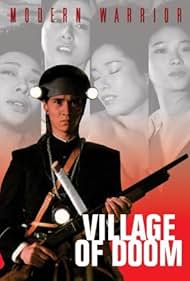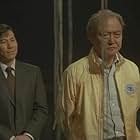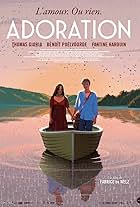An emotionally distraught young man goes on a violent killing spree after his tuberculosis keeps him from serving in World War II and is frowned upon by his fellow villagers.An emotionally distraught young man goes on a violent killing spree after his tuberculosis keeps him from serving in World War II and is frowned upon by his fellow villagers.An emotionally distraught young man goes on a violent killing spree after his tuberculosis keeps him from serving in World War II and is frowned upon by his fellow villagers.
- Awards
- 1 win
Photos
Kumiko Ôba
- Kazuko Takenaka
- (as Kumiko Ohba)
Izumi Hara
- Han Inumaru
- (as Sen Hara)
Kôichi Hori
- Villager
- (as Remon Hori)
Beat Kiyoshi
- Soldier
- (as Bîto Kiyoshi)
- Director
- Writers
- All cast & crew
- Production, box office & more at IMDbPro
Storyline
Did you know
- SoundtracksNippon Rikugun
Words by Tateki Ôwada
Music by Toyokichi Fukazawa
Featured review
As the storm cloud of war gathers over Japan, the desperately patriotic Tsugio waits for his call up to duty. But in the close-knit community of his hometown of Higureya, the women have grown desperate for the company of men. When Tsugio stumbles upon one adulterous union, he too is quickly seduced. But this newfound experience quickly sours when Tsugio is diagnosed with tuberculosis and ostracized by the village. With everyone turned against him, Tsugio takes to the streets, fully armed and thirsty for bloody revenge.
Masato Furuova, the star of this film and who plays the alienated Tsugio, committed suicide in 2008. This seems cruelly apt, as Village Of Doom is a film full of images of death, whether of a body hanging under a tree, spilled poison, gunshot wounds, stabbings or a shotgun barrel entering mouths, although the principal violent events occur at the end. Starting as a film in which Tsugio helps to send a friend off to war and then, after being denied active participation in the real struggle overseas ends up bedding several war wives almost by accident, it ends with him shouting "Banzai!" again - this time to himself, before marching off on a bloodthirsty campaign of his own. Between these two pivotal events is the story of a tubercular youth faced with his physical disadvantages, as well as the frustrations of living in a small, presumably in-bred village. Here, it is said, blood kin sleeps with blood kin and unwanted outsiders are "buried in the hills." During the war there are "always lonely women" the results of their liaisons, it is suggested, being dropped in the river. In many ways this is a return to the isolated and feudal Japan of the past: inward looking, where feuds were brought to bloody and formal climax.
Director Tanaka spent a good deal of his early career in the Japanese porn industry before branching out onto more ambitious and complex subject matter. Village Of Doom betrays some of these origins, as Tsugio's early encounters are filmed in characteristic fashion (there is notable finger-fellatio scene which is dwelt upon) and his serial bedding of those lonely wives, their husbands serving conveniently overseas, would be standard fare for a sex comedy. However Tanaka and his screenwriters have a different tale to relate, one whose success depends to great extent on how sympathetic their lead character is, rather than any libidal considerations. And it's a brutal story, based on a novel, but which one feels might just as easily been inspired by real wartime events. Tsugio's actions are staged in such specific and grisly fashion that they feel like a reconstruction of a case; whether or not this is true, there is no doubt that they provide a powerful conclusion.
Masato Furuova, the star of this film and who plays the alienated Tsugio, committed suicide in 2008. This seems cruelly apt, as Village Of Doom is a film full of images of death, whether of a body hanging under a tree, spilled poison, gunshot wounds, stabbings or a shotgun barrel entering mouths, although the principal violent events occur at the end. Starting as a film in which Tsugio helps to send a friend off to war and then, after being denied active participation in the real struggle overseas ends up bedding several war wives almost by accident, it ends with him shouting "Banzai!" again - this time to himself, before marching off on a bloodthirsty campaign of his own. Between these two pivotal events is the story of a tubercular youth faced with his physical disadvantages, as well as the frustrations of living in a small, presumably in-bred village. Here, it is said, blood kin sleeps with blood kin and unwanted outsiders are "buried in the hills." During the war there are "always lonely women" the results of their liaisons, it is suggested, being dropped in the river. In many ways this is a return to the isolated and feudal Japan of the past: inward looking, where feuds were brought to bloody and formal climax.
Director Tanaka spent a good deal of his early career in the Japanese porn industry before branching out onto more ambitious and complex subject matter. Village Of Doom betrays some of these origins, as Tsugio's early encounters are filmed in characteristic fashion (there is notable finger-fellatio scene which is dwelt upon) and his serial bedding of those lonely wives, their husbands serving conveniently overseas, would be standard fare for a sex comedy. However Tanaka and his screenwriters have a different tale to relate, one whose success depends to great extent on how sympathetic their lead character is, rather than any libidal considerations. And it's a brutal story, based on a novel, but which one feels might just as easily been inspired by real wartime events. Tsugio's actions are staged in such specific and grisly fashion that they feel like a reconstruction of a case; whether or not this is true, there is no doubt that they provide a powerful conclusion.
- BronzeKeilani26
- Jun 14, 2010
- Permalink
Details
- Runtime1 hour 55 minutes
- Color
- Aspect ratio
- 1.85 : 1
Contribute to this page
Suggest an edit or add missing content

















